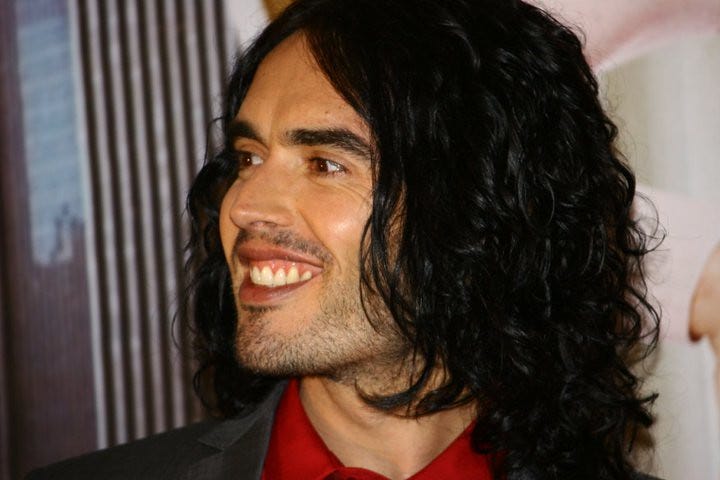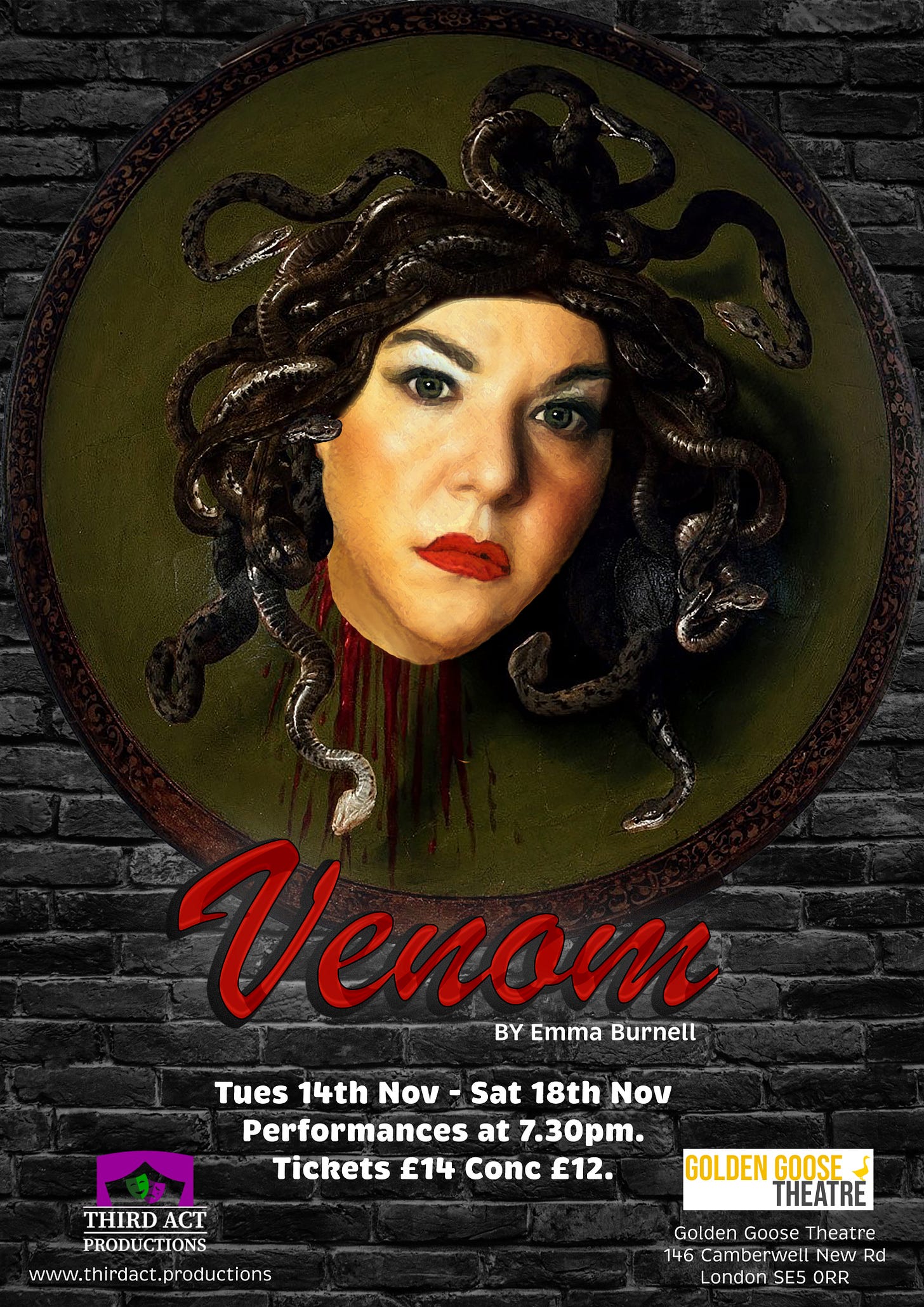Why public figures need good friends
The Brand scandal has got me thinking about tribalism and the ways it can bring us to justify our own appalling behaviour. I include myself in this.
This is the fortnightly free version of my weekly email. I rely, in part, on the income I get from my writing, so would be delighted if you were able to sign up. I am currently offering a 25% discount.
If you are not able to subscribe but feel you have gained something from today’s piece, a donation would also be welcome. As always, I appreciate this is far from possible for everyone.
Also, I am trying to get better at editing my own work. These pieces are usually written over a number of days so sometimes get a little disjointed and I miss my own spelling and grammar errors. But thank you to those who have been in touch. I do appreciate it and I am trying to give myself a little more time before I press ‘send’.
Like everyone else, I have been thinking about Russell Brand for the last week. I never met him, and frankly, wasn’t that keen. Despite being an avid watcher of Big Brother (so claiming no cultural high ground here) I was not keen on the spin-off shows. I always found his style a bit grating.
However, I did once watch one of his stand up specials that I did really like. I think I also tweeted in support of his meeting with Ed Miliband. I also have no doubt that had I met him I would have been charmed and excited by his celebrity. No matter how much I try not to do that, it’s a facet of human nature I can’t quite switch off. Meeting famous people is exciting.
I don’t want to write about Brand today. So many others have done so better than I could and - as such I don’t feel I have much to add. read Hadley Freeman’s brilliant piece on how we are all a little bit culpable. More importantly, read the original investigation from the Times or watch the Dispatches. Superb journalism.
I do want to talk about human nature though. And how it interacts with how we do politics - both good and bad.
What this has made me think about is what my reaction might have been like if I had liked Brand. If I were on ‘team conspiracy theories’ and ‘wellness’. Or if he was on team Fabian Socialism. If I had worked with him - tangentially enough not to *really* see anything, but close enough to say that we know each other. How then would I behave?
The reason I ask is I watch the people who have embraced Brand’s recent conspiracist turn and I watch them act in ways that are completely oppositional to the way they have behaved over similar accusations to other people. People they don’t see as part of their coalition - their gang.
Again, much will be written about their hypocrisy. Here I want to think about my own - and the ways I try to guard against it. And what we should all do to make sure that we are making politics and our lives within it better.
I have recently been rewatching the whole of Buffy and Angel. Anyone who knows me knows what a fan I am of these shows. When I got married, I even went down the aisle to the theme tune from Buffy. But I have had to reevaluate my feelings somewhat in light of the revelations not just of their creator, Joss Whedon’s appalling behaviour, but of how unhappy that made his fellow creatives on the sets of these shows. Can I see things I didn’t in my original interpretation? Is it OK to enjoy work created - at least in part - through pain? Should this man’s behaviour rob me of the many things I have gained over the years from loving Buffy? Should it rob those fellow creatives of their pride in their work?
For those of us not directly affected by such scandals, these are the questions we are likely to ask ourselves. But let’s transpose this situation to politics. Because I’ve been around a long time. And while, like most women in politics and all walks of life, I have experienced low-level sexual harassment and ingrained sexism, I don’t have the experience of the women who were mistreated and abused.
Rumours have great currency in Westminster, but they are usually just that - rumours. There is a great deal of difference between knowing something and proving something. Between having and even privately sharing an awareness that has been gained and going on the record. The journalists in the Brand case called their documentary In Plain Sight - and with hindsight it does all seem pretty clear. But that investigation took four years of painstakeing work to get it to a point where the allegations could be made publicly.
I tend to write and perform opinion and analysis journalism. This means that my job is to offer my interpretation of the facts of a case, the merits of a policy or the strength of a strategy. It is not - generally - to dig out those facts myself, to write the policy or to devise the strategy (though I do some of the latter for clients with my other hat on).
To do this well, I have to do two things. I have to know what I think about something and I have to be able to articulate that in a persuasive way. I’m sure I don’t always live up to these standards, but they are what I strive for.
Knowing what I think is by far the harder of the two. I am a politics obsessive, but a generalist too. I don’t have the in depth knowledge of a researcher or journalist with a specific beat. I have to apply my understanding of the world and the world of politics to a range of ideas on a fairly superficial level. If, for example. I am doing a paper review, I might be asked to comment on up to 10 different stories in the course of a morning, of varying seriousness.
Sometimes I am simply up front about not caring very much. This is always my line on Royal stories. I am anti-monarchy. I do not - therefore - care very much about their day to day behaviours.
However, usually, what I am doing is looking at any policy through the lens of how it might affect the country I live in, the people who I believe a policy should be for and the politics of the whole thing.
Here is the nub of the problem. Becuase the easiest thing in the world then is not to look at each of those stories and try to get, quickly, to what I think is the heart of it, but to outsource that thinking to others. What do the people whose opinions I usually agree with think about this thing? What do my friends think? What opinion will get me into the good books/least trouble with those whose good opinion of me I value?
This is what I think happens all too often with scandals like this one. Brand falls into a gang. And if he is ‘one of us’ the rest doesn’t matter.
But it really should. We will naturally want to think well of our friends and poorly of our enemies. But there are times when we have all found that this wasn’t true. Friends let us down all the time. We can choose to stay friends with them despite this. It probably depends on what they have done. Opponants sometimes demonstrate extraordinary grace and we may think slightly different of them as people as a result - even as we continue to despise their politics and its results.
I think the biggest problem I have with the conspiracy set is that I am constantly told by them that they are ‘just asking questions’. But this is a lie. Becuase the act of questioning implies that you listen to the answers. But if your ability to believe an answer depends not on the proof you are offered but the relationship or admiration you have with or for the other party, you are not of a questioning mindset at all. You are simply trying to trim the world to the shape you believe it to me.
This is the rabbit hole that Brand seems to have fallen down in his latter career as a video truther. He is one of the more articulate purveyors of nonsense, but again, listen properly and there is never any ‘there’ there. Just well articulated puffery.
Being a good friend can sometimes be about being able to tell your friends when you disagree with them and being able to have that conversation well. I wonder if there was anyone in Brand’s life that was able to do that. To tell him that his attitude to women was questionable in public and allegedly much darker in private.
The internet age has us giving ourselves off into siloes more and more. I talked about the dangers of this in my recent TedX talk. Why we need to be able to have arguments well because if we can’t we lose the ability to actually articulate what we think. We lose the courage to stand up for what we believe in not who we like. That’s bad for the battleground of ideas.
Come and see Venom
click on the poster below to find details of my next play in November.
What I’ve been up to
Just one review this time, for Strategic Love Play which I didn’t enjoy as much as other critics (so in the spirit of this post, read other reviews too!)
And here’s the most recent episode of House of Comments. Do subscribe to get it in your podcast feed every week!




